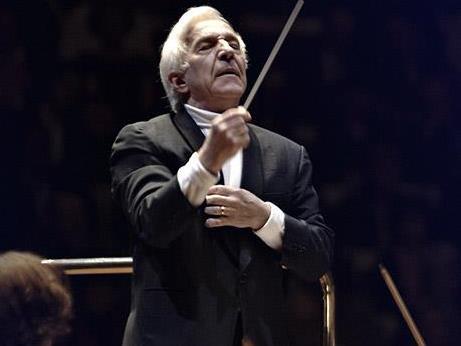Vladimir Ashkenazy, conductor. Image via Sydney Symphony Orchestra.
The Concert Hall was almost full for this wonderful performance of sheer musicality by the Sydney Symphony Orchestra with conductor Vladimir Ashkenazy and pianist Jayson Gillham.
Ashkenazy is well known and much loved by the local audience thanks to his tenure as Principal Conductor of the SSO from 2009 to 2013. There is also a depth of understanding between him and the majority of the orchestra who were in residence during that period. They know the nuances of his eclectic conducting and respond well to his gestural style.
The program began with Beethoven’s delightful Piano Concerto No. 4, an elegant, sophisticated composition. This is an exemplary piece of theatrical restraint, opening with a lyrical piano solo from which everything else grows organically. Soloist Jayson Gillham excels at the 4th – it was this very piece that saw him take out the honours in the 2014 Montreal International Music Competition.
Gillham is already a masterful pianist, making the complex prestidigitation seem effortless. He spanned the keyboard with ease, and played with particular clarity and definition. I’m sure great things await Gillham as his career develops.
Ashkenazy’s depth of experience also shone through, ensuring the orchestra complemented the piano in each movement. The rondo was especially colourful and made a perfect climax to the piece.
The audience was fulsome in its appreciation, eliciting a beautiful Bach fugue as an encore from Gillham. We all adjourned happy for interval drinks!
The second half of the program was devoted to Beethoven’s 3rd Symphony, now known as the Eroica (or Beethoven Heroic). This was written at a time that is considered to be the transitional phase between his first and second periods, and in many ways it is pure Beethoven. When it premiered in 1805 it was the longest symphony ever written at over 45 minutes.
There is a magnificent opening movement of sustained drama that unleashes the emotional tension to follow. Ashkenazy held a tight rein on the second movement’s Funeral March, ensuring a deliberately measured pace. The wind section is given some especially poignant work and the finale is just superb. Throughout, the heavy string passages remind us of the importance of the work and the oboes and flutes added perfect balance.
Again, Ashkenazy’s conducting was superb enabling the SSO to revel in the full mastery of the Eroica and explore the multiple themes and influences with panache. He is always an engaging character on the podium and at 79 years young, Ashkenazy displays an astonishing energy and stamina.
The final performance of Beethoven Heroic is tonight, Monday 17 October, at the Opera House.
Rating: 4 1/2 stars out of 5
Beethoven Heroic
Sydney Symphony Orchestra
Opera House Concert Hall
Artists
Vladimir Ashkenazy conductor
Jayson Gillham piano





